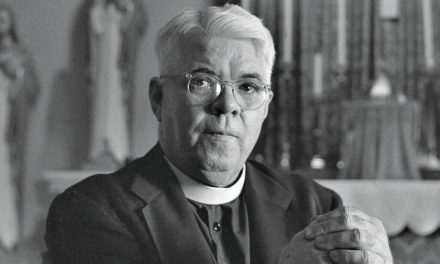|| Preview by James Keane
Is there a way to respond more authentically and effectively in our strategies for solidarity with the poor and the underprivileged, without either succumbing to despair or trivializing the struggles of others? For anyone who has participated in mission work, sent a child off on a foreign immersion trip, participated in relief efforts for any human catastrophe around the globe or even watched the evening news, these questions inevitably come to the fore.
Using personal anecdotes as well as philosophical and theological reflection, Donald H. Dunson and James A. Dunson III tackle such questions in the Orbis book Citizen of the World, in which they emphasize the power of moral argument as well as personal experience in addressing what can seem an insurmountable catalog of evils and suffering in the world.
Approaching these issues from different backgrounds and narrative styles, Dunson and Dunson note that it is never appropriate to shrug one’s shoulders and say “not my problem.” They acknowledge that when it comes to discerning the best methods and perspectives for alleviating the suffering of others while respecting their dignity, it’s complicated.
“We share the moral conviction that it is possible to fashion a more just and human world,” the authors state, “and together we have been exploring possible avenues to arrive at that aim.”
Citizen of the World reflects a unique style and two distinct voices that share a common conviction. Father Donald H. Dunson is pastor of St. Vincent de Paul parish in Elyria, Ohio, and the author of two previous Orbis books, No Room at The Table: Earth’s Most Vulnerable Children (2003) and Child, Victim, Soldier (2008). His nephew, James A. Dunson III, is a professor of philosophy at Xavier University of Louisiana in New Orleans.
The theologian meets the philosopher throughout the text, and both bring personal experiences of work and travel throughout the world to this study, complementing their professional and academic understanding of the issues. Some of their stories and examples range as far as Sudan and India; others introduce us to people and places right around the corner from us. Each chapter includes reflections from both authors on topics such as “The Power of Moral Argument,” “The Value of Personal Experience,” and “The Problem of Evil and the Limits of Human Control.”
With a great deal to offer on an intellectual and theoretical level, this book is written in a style that is anything but academic. The gentle tone and carefully parsed commentary makes this a book accessible at a high school level and beyond. Indeed, generations who grew up knowing nothing but a globalized world may profit most from Citizen of the World.
James Keane is acquisitions editor at Orbis Books.





